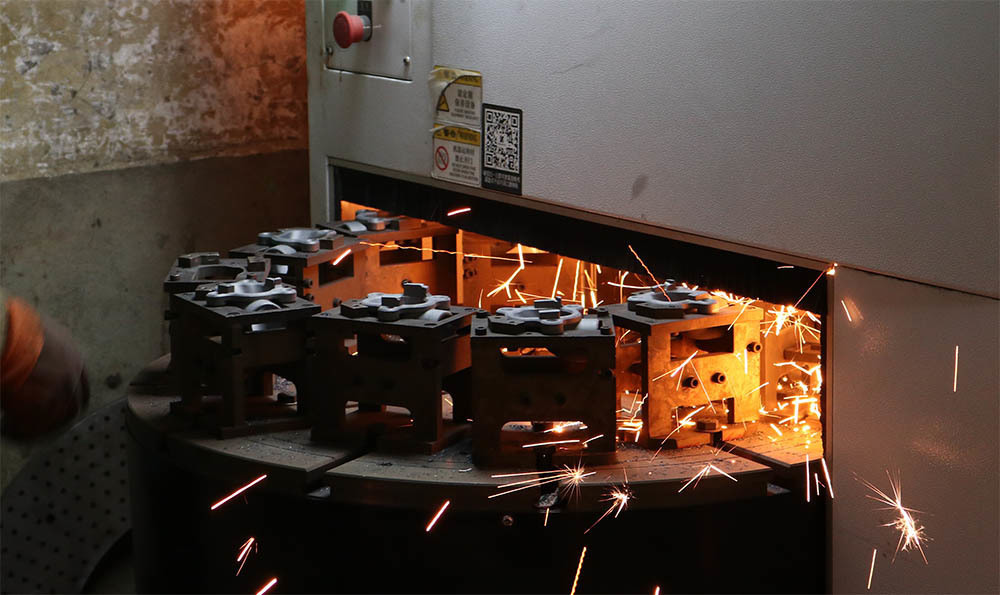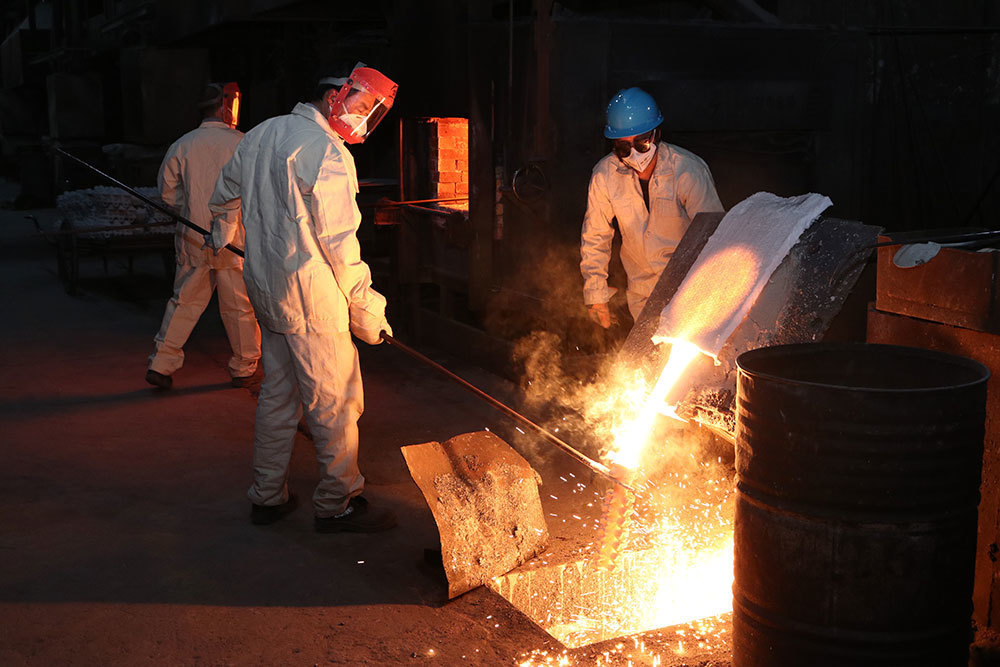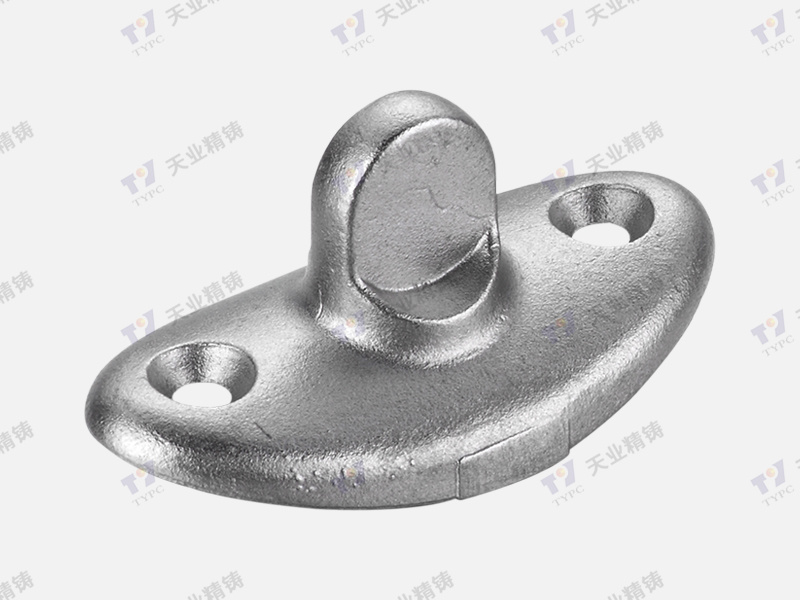2025-05-17
Brass Power System Components: The Backbone of Industrial Machinery
Brass Power System Components: The Backbone of Industrial Machinery
Understanding Brass in Industrial Applications
Brass is an essential metal alloy composed primarily of copper and zinc. Its unique properties, including corrosion resistance, electrical conductivity, and malleability, make it an ideal choice for various components in industrial machinery. The **significance of brass power system components** cannot be understated, as they play a crucial role in ensuring the efficiency and longevity of machines across diverse sectors.
The Role of Power System Components in Machinery
Power system components are integral to the operation of industrial machinery. They serve as connectors, fasteners, and conduits for power transfer. The reliable performance of these components is vital for the smooth functioning of machinery, directly impacting productivity and operational costs.
Key Properties That Make Brass Ideal for Power Components
Brass exhibits several properties that enhance its suitability for industrial applications:
Corrosion Resistance
Brass's natural resistance to corrosion ensures durability, especially in environments where moisture or chemicals may be present. This quality reduces maintenance costs and extends the lifespan of machinery parts.
Electrical Conductivity
Brass possesses excellent electrical conductivity, making it an ideal choice for various electrical applications. Its ability to efficiently conduct electricity minimizes energy loss and optimizes machine performance.
Malleability and Ductility
Brass can be easily shaped and formed, allowing manufacturers to create intricate designs tailored to specific mechanical needs. The malleability of brass facilitates the production of custom components that fit perfectly within machinery.
Types of Brass Power System Components
There are several types of brass components that serve vital functions in industrial machinery. Understanding these components helps in making informed decisions when selecting parts for your machinery.
1. Brass Fittings
Brass fittings are used to connect different sections of piping or tubing. Their robust construction ensures secure connections that can withstand high pressure and temperature variations.
2. Brass Valves
These components control the flow of fluids within a system. Brass valves are preferred for their durability and resistance to wear, ensuring reliable operation over extended periods.
3. Brass Connectors
Brass connectors create electrical connections and offer reliable performance in various applications. Their excellent conductivity promotes efficient power transfer, which is essential for optimal machine operation.
4. Brass Fasteners
Brass fasteners, including screws, bolts, and nuts, are critical for holding machinery components together. Their strength and resistance to corrosion make them ideal for demanding industrial environments.
5. Brass Hydraulic Components
In hydraulic systems, brass components like fittings, valves, and connectors are vital for maintaining pressure and ensuring smooth operation. Their ability to withstand high pressure makes them indispensable in hydraulic machinery.
Benefits of Using Brass Power System Components in Industrial Machinery
Choosing brass components for industrial machinery offers numerous benefits that can significantly enhance operational efficiency and reduce costs.
Increased Longevity
Brass components are known for their durability. The natural resistance to wear and corrosion contributes to a longer lifespan, reducing the frequency of replacements and maintenance.
Improved Performance
The electrical and thermal conductivity of brass components contributes to better overall performance of machinery. Efficient energy transfer and minimal resistance lead to improved functionality and productivity.
Cost-Effectiveness
While brass components may have a higher initial cost compared to some alternatives, their longevity and reduced maintenance requirements make them a more cost-effective choice in the long run.
Choosing the Right Brass Components for Your Application
Selecting the right brass power system components for your industrial machinery involves several considerations.
1. Assessing Operating Conditions
Understanding the environmental conditions where the machinery operates is crucial. Factors like temperature, pressure, and exposure to corrosive substances should guide your selection of brass components.
2. Compatibility with Other Materials
Ensure that the brass components are compatible with other materials in the machinery. This compatibility minimizes the risk of galvanic corrosion and ensures seamless operation.
3. Manufacturer Reputation
Choosing components from reputable manufacturers guarantees quality and reliability. Researching and selecting trusted brands can significantly impact the overall performance of your machinery.
Maintenance Tips for Brass Power System Components
To maintain the functionality and longevity of brass components, regular maintenance is essential. Here are some tips to ensure optimal performance:
1. Regular Inspections
Conduct routine inspections to identify signs of wear or corrosion. Early detection of issues can prevent costly repairs and downtime.
2. Cleanliness is Key
Keep brass components clean to prevent the buildup of dirt and grime. This cleanliness minimizes the risk of corrosion and maintains optimal performance.
3. Lubrication
Using appropriate lubricants can reduce friction and wear in brass components, especially in moving parts. Regular lubrication ensures smooth operation and extends component life.
4. Replacement of Worn Components
Replace any worn or damaged brass components promptly to prevent further damage to machinery. Regularly updated components contribute to the overall efficiency of industrial machines.
Environmental Considerations in Brass Component Production
The production of brass power system components involves various environmental considerations. Sustainable practices in manufacturing can minimize the impact on our planet.
1. Recycling Brass
Brass is highly recyclable, and using recycled materials in production significantly reduces environmental impact. Opting for products made from recycled brass supports sustainability.
2. Reducing Waste in Production
Manufacturers are increasingly adopting practices to minimize waste during the production of brass components. Efficient production techniques contribute to a smaller ecological footprint.
Future Trends in Brass Power System Components
As industries evolve, so do the demands placed on brass power system components. Here are some trends shaping the future of these essential components:
1. Smart Components
The rise of Industry 4.0 is fueling the development of smart brass components equipped with sensors. These innovations can monitor performance and provide valuable data for predictive maintenance.
2. Enhanced Alloys
Research into new brass alloys and composites is ongoing. Enhanced materials may offer improved properties such as greater strength, reduced weight, and enhanced corrosion resistance.
3. Customization Options
As industries seek more tailored solutions, the demand for customized brass components is increasing. Manufacturers are investing in technologies that allow for bespoke designs to meet specific needs.
Frequently Asked Questions (FAQs)
What are the primary uses of brass power system components?
Brass power system components are used in a variety of applications, including plumbing, electrical systems, and hydraulic machinery, due to their durability and excellent conductivity.
Are brass components suitable for outdoor use?
Yes, brass components are suitable for outdoor use due to their corrosion resistance. However, regular maintenance is recommended to maintain their longevity.
How do I know if I need to replace my brass components?
Signs of wear, such as corrosion, leaks, or decreased performance, indicate that it may be time to replace brass components.
Can brass components be recycled?
Absolutely! Brass is one of the most recyclable materials, and recycling brass components can significantly reduce environmental impact.
What factors should I consider when purchasing brass components?
Consider operating conditions, compatibility with existing materials, manufacturer reputation, and specific application requirements when purchasing brass components.
Conclusion
Brass power system components are undoubtedly the backbone of industrial machinery. Their unique properties and exceptional performance enhance the reliability and efficiency of various applications. By understanding the significance of these components, selecting the right parts, and implementing proper maintenance practices, industries can optimize their machinery for better productivity and longevity. As technology advances, staying informed about trends and innovations in brass components will ensure that industries remain competitive and environmentally responsible. Investing in high-quality brass components is not just a strategic choice; it's a commitment to excellence in industrial operations.









